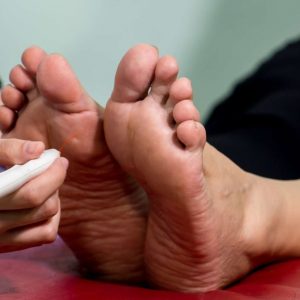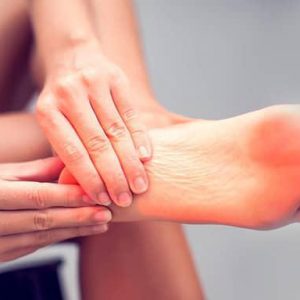
Diabetic Neuropathy
Diabetic Neuropathy, also known as Diabetic Peripheral Neuropathy, is a condition that impacts individuals with diabetes. This condition is marked by nerve damage to the peripheral nervous system. Most commonly, this condition is characterized by numbness, pain and weakness.
Diabetic neuropathy is most commonly seen in the hands and feet, although it may also impact other areas of the body.
Causes of Diabetic Neuropathy
Diabetic neuropathy impacts the peripheral nervous system. What does this nervous system do? It transmits information from the brain and spinal cord to other parts o the body. When these nerves are damaged, they can cause pain, weakness and numbness in the extremities.
While there are several things that can impact the peripheral nervous system, but when it is caused by diabetes, it is classified by diabetic peripheral neuropathy. When a patient has chronically high blood sugar levels, they are at al elevated disk of damaging the nerves throughout the body, meaning they can no longer correctly carry signals to the brain.
The result is some patients being unable to correctly feel heat, pain or cold in certain extremities.


Symptoms of Diabetic Neuropathy
Different patients may experience different symptoms based on the specific nerve that has been effected. Symptoms include:
- Tingling or numbness in the feet or hands
- Muscle weakness
- Paralysis
- Sharp stabbing pain in the legs
- Burning sensation in the less
- Loss of coordination or balance
Treating Diabetic Neuropathy
Diabetic neuropathy is a condition that can be treated by a physician. After going through a medical history, physical examination and a reflex test, a doctor will be able to diagnose and recommend treatment options for your diabetic neuropathy. One of the main treatments of diabetic neuropathy is to control the patient’s blood sugar levels.
Additionally, pain medications are often prescribed to help with the burning, tingling and discomfort in the affected area. Pain management and rehabilitation is one of the best ways to get individuals with this condition back to feeling like themselves.
We are Accepting New Patients
If you are struggling with Diabetic Neuropathy and are looking for pain relief, come visit the experts at Principal Spine. Our pain management doctors are accepting new patients to schedule and appointment, please call our Carrollton clinic at (972) 316-7270 or our Denton clinic at (940) 222-8943.

